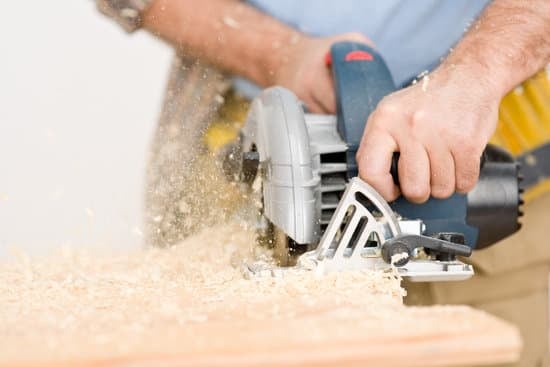What is a capital improvement in your home? Understanding the difference between capital improvement and repairs, examples of capital improvements, benefits of making these improvements, financing options, and common pitfalls to avoid are essential for homeowners.
Capital improvements can add value to your property and enhance your quality of life. This article will provide an in-depth look at what constitutes a capital improvement, how it differs from repairs, and the various aspects involved in making these substantial changes to your home.
Capital improvements are significant enhancements or additions to your property that increase its value, extend its useful life, or adapt it for new use. These improvements typically go beyond routine maintenance or minor repairs, involving substantial investments of time and money. It’s important for homeowners to understand the distinction between capital improvements and regular repairs when planning and budgeting for home projects.
In this section, we will explore the definition of capital improvements in greater detail. We will also delve into specific examples of capital improvements that can be made to different areas of your home. With a better understanding of what constitutes a capital improvement, you can make informed decisions about how to best invest in your property for long-term value and enjoyment.
Understanding the Difference
When it comes to maintaining and improving your home, it’s important to understand the difference between capital improvements and repairs. While both can add value to your property, they are distinct in terms of their scope and impact.
A capital improvement in your home refers to any significant renovation or enhancement that increases the value of the property or extends its useful life. This can include major projects such as adding a new room, installing a new heating system, or renovating the kitchen or bathroom. Essentially, capital improvements are investments in your property that result in long-term benefits.
On the other hand, repairs are necessary fixes to restore something to its original condition. This could involve patching up a leaky roof, fixing a broken window, or repairing a malfunctioning appliance. Unlike capital improvements, repairs are considered routine maintenance and do not typically add significant value to the property.
Understanding the difference between capital improvements and repairs is crucial for homeowners who want to make smart investment decisions for their property. By focusing on capital improvements that enhance the overall quality and value of your home, you can ensure that your investment pays off in the long run.
Examples of Capital Improvements in Your Home
Capital improvements in your home are investments to enhance the value or extend the useful life of your property. These improvements go beyond simple repairs and maintenance and are typically more substantial in nature.
Examples of capital improvements can include remodeling a kitchen or bathroom, adding a room or finishing a basement, installing new flooring or a new roof, and upgrading HVAC systems. These types of projects can add value to your home and make it a more comfortable and functional space for you and your family.
One example of a capital improvement in your home is adding energy-efficient windows and doors. Not only does this improve the aesthetic appeal of your home, but it also helps reduce energy costs by providing better insulation. Another example is installing solar panels, which not only reduce your carbon footprint but can also increase the value of your home.
It’s important to note that while some renovations may feel like capital improvements, they may not necessarily increase the value of your home. For example, adding a swimming pool might be desirable for you as the homeowner, but it may not always result in a significant increase in the resale value of your property.
| Capital Improvement | Impact |
|---|---|
| Remodeling kitchen or bathroom | Adds functionality and improves aesthetics |
| Upgrading HVAC systems | Increases energy efficiency and comfort |
| Adding energy-efficient windows and doors | Reduces energy costs and improves insulation |
Benefits of Making Capital Improvements
When it comes to homeownership, making capital improvements to your home can offer a wide range of benefits. These improvements can increase the value of your property, improve energy efficiency, and enhance the overall functionality and appeal of your home. In this section, we’ll explore some of the key benefits of making capital improvements and how they can positively impact your home.
Increased Property Value
One of the primary benefits of making capital improvements to your home is the potential increase in property value. Renovations such as kitchen and bathroom remodels, adding a deck or patio, or finishing a basement can significantly increase the resale value of your home. When it comes time to sell, these improvements can make your property more attractive to potential buyers and lead to a higher sale price.
Improved Energy Efficiency
Another important benefit of capital improvements is the opportunity to improve the energy efficiency of your home. Upgrading windows, doors, insulation, HVAC systems, or installing solar panels are all examples of capital improvements that can reduce energy consumption and lower utility bills. Not only does this result in cost savings for you as a homeowner, but it also has positive environmental impacts by reducing your carbon footprint.
Enhanced Comfort and Functionality
Making capital improvements to your home can also enhance its overall comfort and functionality for you and your family. Whether it’s creating additional living space, updating outdated features, or adding modern amenities, these improvements can make your home more enjoyable and comfortable to live in. From increased storage space to improved indoor air quality, investing in capital improvements can have a significant impact on your day-to-day living experience.
Overall, making capital improvements in your home has the potential to provide long-term financial benefits while also improving the quality of life for you and your family. By increasing property value, improving energy efficiency, and enhancing comfort and functionality, these improvements are an investment in both the present and future well-being of your home.
Financing Capital Improvements in Your Home
When it comes to making capital improvements in your home, one of the most important aspects to consider is how to finance these projects. Capital improvements are significant investments that can increase the value of your property, improve its functionality, and enhance your overall quality of life. However, they often require a substantial amount of financial resources.
There are several financing options available for homeowners looking to undertake capital improvement projects. One common method is through a home equity loan or line of credit, which allows you to borrow against the equity you have built in your home. This type of financing typically offers lower interest rates than other forms of borrowing, making it an attractive option for many homeowners.
Another alternative is to use a cash-out refinance, which involves replacing your existing mortgage with a new one that has a higher balance. The difference between the two amounts is then given to you as cash that can be used for capital improvements. Before deciding on a financing option, it’s important to carefully assess your financial situation and consider factors such as interest rates, repayment terms, and potential tax implications.
It’s also worth exploring government programs and incentives that may provide financial assistance for certain types of capital improvements. For example, energy-efficient upgrades such as solar panels or insulation may be eligible for tax credits or rebates from federal or state agencies. By taking advantage of these programs, you can reduce the financial burden of making capital improvements while also contributing to environmental sustainability.
| Financing Option | Description |
|---|---|
| Home Equity Loan/Line of Credit | Borrow against the equity in your home at lower interest rates |
| Cash-Out Refinance | Replace existing mortgage with a new one and receive cash for improvements |
| Government Programs/Incentives | May provide tax credits or rebates for energy-efficient upgrades |
Hiring Professionals for Capital Improvement Projects
When it comes to making capital improvements in your home, hiring professionals for the job can make all the difference in ensuring that the project is completed successfully. Whether it’s a major renovation or an addition to your property, working with skilled and experienced contractors can help you achieve the results you desire.
Benefits of Hiring Professionals
One of the key benefits of hiring professionals for capital improvement projects is their expertise and knowledge in their respective fields. Whether it’s a carpenter, electrician, plumber, or general contractor, these professionals have the skills and experience necessary to ensure that the work is done correctly and meets building code requirements. Additionally, they will be able to provide valuable insights and recommendations based on their years of experience in the industry.
Another advantage of working with professionals is that they often have access to specialized tools and equipment that may not be readily available to homeowners. This allows them to complete the job more efficiently and effectively, ultimately saving you time and money in the long run.
How to Find the Right Professionals
When looking for professionals to hire for your capital improvement project, it’s important to do thorough research and vetting. Look for contractors or tradespeople who are licensed, insured, and have a good track record of completing similar projects. Ask for references from past clients and don’t hesitate to ask detailed questions about their experience and qualifications.
In addition, obtaining multiple quotes from different professionals can help you compare costs and determine which option best fits your budget and timeline. Ultimately, choosing the right professionals for your capital improvement project can make all the difference in achieving a successful outcome that adds value to your home.
Common Pitfalls to Avoid When Making Capital Improvements
When making capital improvements in your home, it is important to be aware of common pitfalls that can hinder the success of your projects. One common mistake homeowners make is not planning for the long-term impact of the improvement.
It’s crucial to consider how the improvement will affect the property’s value and whether it aligns with your long-term goals for the home. Additionally, failing to obtain necessary permits and approvals before starting a capital improvement project can lead to costly fines and delays.
Another pitfall to avoid is hiring inexperienced or unlicensed contractors for capital improvement projects. Working with professionals who lack the proper qualifications can result in subpar workmanship, safety hazards, and potential legal issues. It’s essential to thoroughly research and vet contractors before hiring them for any home improvement project.
Lastly, overlooking the importance of setting a realistic budget for capital improvements can lead to financial strain and incomplete projects. It is crucial to carefully assess the costs involved in the improvement, including materials, labor, permits, and any unexpected expenses that may arise during the project. By establishing a comprehensive budget and allowing for contingencies, homeowners can avoid running into financial difficulties during their capital improvement projects.
Conclusion
In conclusion, it is important to understand the value of capital improvements in your home. By investing in these types of improvements, you are not only enhancing the functionality and aesthetics of your property but also increasing its overall value. Whether it’s upgrading your kitchen or bathroom, installing energy-efficient windows, or adding a new roof, capital improvements can significantly improve the quality of your home and make it more appealing to potential buyers in the future.
Moreover, by making capital improvements, you are also contributing to the long-term sustainability and durability of your home. These improvements can help reduce maintenance costs over time and increase energy efficiency, ultimately leading to savings on utility bills. In addition, with the right upgrades and renovations, you can create a more comfortable and enjoyable living environment for you and your family.
Overall, while making capital improvements in your home may require a significant financial investment upfront, the long-term benefits far outweigh the initial costs. Whether it’s increasing property value, reducing energy expenses, or simply enjoying a better quality of life, capital improvements are an essential part of homeownership. So whether you’re considering a major renovation or a series of smaller upgrades, investing in capital improvements is ultimately an investment in the future of your home.
Frequently Asked Questions
Is Flooring Replacement a Capital Improvement?
Flooring replacement can be considered a capital improvement depending on the context. If the new flooring increases the value of the property or extends its useful life, then it is typically classified as a capital improvement.
Are Appliances Considered Capital Improvements?
Appliances can also be considered capital improvements under certain circumstances. If the appliances are permanently attached to the property and have a long-term effect on its value, they are generally categorized as capital improvements.
What Is the Difference Between Repairs and Capital Improvements?
The main difference between repairs and capital improvements lies in their impact on the property. Repairs are necessary for maintenance or to restore something to its original condition, while capital improvements enhance the property’s value, extend its life, or adapt it to new uses.

I’m thrilled to have you here as a part of the Remodeling Top community. This is where my journey as an architect and remodeling enthusiast intersects with your passion for transforming houses into dream homes.





